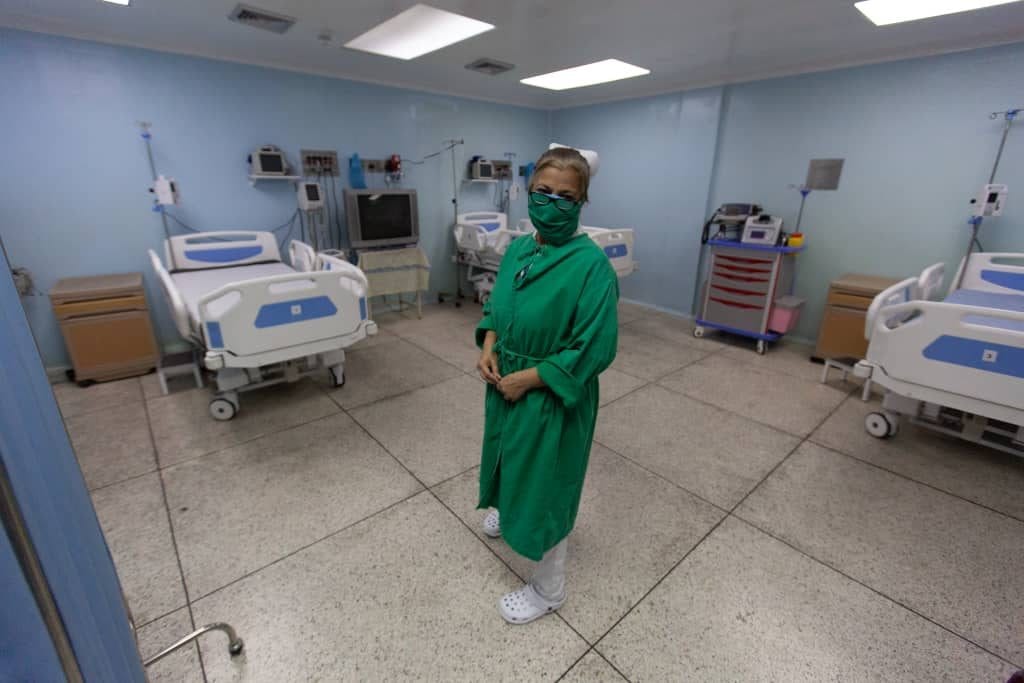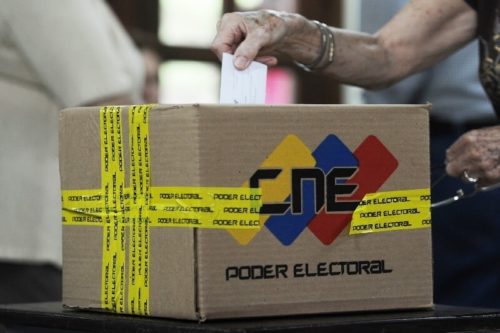The Human Rights Commission of the State of Zulia (Codhez) presented its 2022 Annual Report on the general situation of human rights in the Zulia region, a study that compiles the multiple failures of the Venezuelan State in the region, where the neglect of the authorities persists and worsens amid the country’s Complex Humanitarian Emergency.
2022 presented many challenges to the everyday lives of families in the western Venezuelan state of Zulia in the face of the systematic violation of their rights. Amid an ongoing economic crisis that has affected people’s basic rights, the report highlights the State’s failure to comply with the obligations of guaranteeing access to adequate health and education services, protecting indigenous peoples and communities and respecting the rights to life and food, among other principles that can ensure an adequate standard of living for the population.
Starvation wages
“People in Zulia fight a daily battle for survival in a context where the right to food is not guaranteed and the correct or necessary measures are not taken to protect food security,” Codhez reports. The civil association points out that inflation, low wages, few job opportunities, economic instability and high food prices, among others, are some of the problems experienced by families in the region who have seen their well-being and quality of life deteriorate over time.
As of March 2022, the minimum monthly wage was set at Bs. equivalent to 7.52 US dollars by late December 2022 under the official exchange rate, which depreciated by more than 73% in the course of one year.
According to the monitoring of food availability and prices conducted by the organizations, a family in the locality of Maracaibo, San Francisco, Mara, Cabimas or Lagunillas required an average of 76.50 us dollars to purchase a basic food basket in the second half of November 2022.
Excessive use of police force
On the other hand, violence by police forces persisted in Zulia during 2022, with alleged extrajudicial executions and violations of the right to life of victims who, even in the event of the commission of a crime, must be brought before the justice system and enjoy the right to due process and legal defense.
“In 2022, a total of 108 alleged extrajudicial executions or presumed unlawful killings were recorded in the context of 88 incidents of violence involving the intervention of the national, regional or local security bodies of the Venezuelan State,” the report indicates.
Even though the figure implies a year-on-year decrease of 53.63% in the number of deaths and 50.56% in terms of the number of incidents of violence, Codhez calls to urgently put an end to the use of excessive police force, impunity and re-victimization.
Inadequate health services
According to the Zulia-based civil association, the Complex Humanitarian Emergency continues to affect the region, as evidenced by the serious limitations to the enjoyment of the right to health, including the obstacles in accessing medication, adequate medical services, priority care for vulnerable groups or special care for patients with chronic diseases, among others. In this sense, people living with chronic conditions and requiring continuous care suffer the most from the serious shortcomings of the region’s health system.
The Codhez report states that people with kidney problems “experience a constant struggle to receive dialysis and treatment” at the University Hospital of Maracaibo, where they have to go up three floors by stairs given that the sole working elevator reaches the sixth floor while the dialysis unit is on the ninth floor, forcing them to spend up to two hours to get to the area where receive the treatment. As a result of this, cases were reported of patients suffering spinal damage that left them in wheelchairs after having to climb the stairs on repeated occasions.
Indigenous peoples and communities
Codhez emphasizes that the continued inefficiency in the provision of basic services continues to cause discomfort and concern among the indigenous communities stationed in La Guajira, in addition to the inefficient provision of health services and problems of food availability and accessibility.
The reality for the indigenous peoples and communities located in the Sierra de Perijá, -the Barí, Japreria and Yukpa peoples- is no different. The poor conditions of roads in the area, which make trips almost impossible, are examples of the historical abandonment of the region by the authorities.
The municipalities of Guajira, Isla de Toas, Cabimas and San Francisco at a glance
Several chapters of the 2022 Annual Report by Codhez specifically address the situation of human rights in the municipalities of Guajira, Isla de Toas (located in the Almirante Padilla municipality), Cabimas and San Francisco, with special attention to the provision of public services and infrastructure.
The first two municipalities were found to present structural and long-standing problems, the solution to which points to a set of sustainable measures that require priority attention from the three levels of government within the framework of their duties.
Regarding Cabimas, the urgency of solutions in the short term was specified for the situation of basic services and the protection of food security. In the case of San Francisco, the organization urges the authorities to use the existing human, material and infrastructure resources for the reactivation of the local industrial zone, sustainable tourism opportunities and the promotion of small-scale farming.
Poor schooling conditions
This same restrictive situation occurs in the right to education, whose main victims are the thousands of boys, girls and young adults who, in the absence of adequate schooling conditions, see the realization of their personal projects and their academic, cognitive and skills potential walk away, condemning the society to ignorance.
The decreasing number of teachers and students in the school system was also verified in 2022. According to Codhez, emblematic schools such as those run by the non-profit Christian Association Fe y Alegría reported the loss of up to 30% of their staff due to low salaries.
In mid-2022, the president of the Zulia chapter at the Venezuelan Association of Teachers indicated that school facilities in the region were in ruins, with the vast majority lacking basic services such as electricity and internet, in addition to the School Food Program.
A neglected Zulia region
In light of the findings of its 2022 Annual Report, Codhez reaffirmed its purpose of making the realities of the state of Zulia visible to national and international bodies through the work of denunciation and the demand for the recognition of people’s rights and freedoms, and by urging the Venezuelan State to honor its international and constitutional obligations.
In this sense, the organization reiterates that the Complex Humanitarian Emergency continues to affect the country while the Venezuelan State continues to fail to fulfill its duties with human rights, which remained in a serious situation in 2022. Codhez is committed to continuing to promote and defend human rights in the Zulia region as a fundamental element of a thriving and free society where everyone enjoys human dignity.
Download the full report in Spanish HERE
Translated by Jose Rafael Medina




